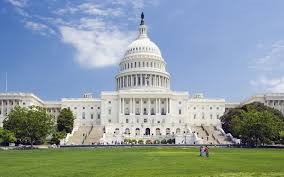
ATLANTA – The U.S. House of Representatives gave final passage early Thursday evening to a $484 billion economic stimulus package to help offset the financial impacts of the coronavirus pandemic.
House members voted overwhelmingly 388-5 to send the package to President Donald Trump, who is expected to sign it as early as Friday.
Most of the funding – $310 billion – will go to benefit small businesses through the Paycheck Protection Program (PPP). The initial $350 billion Congress put toward the new program late last month – part of a $2.2 trillion stimulus package – ran out a week ago, just two weeks after the initiative was launched.
“This new funding for the Paycheck Protection Program will offer a lifeline to small businesses and the millions of hardworking women and men they employ,” U.S. Sen. David Perdue, R-Ga., said earlier this week after the stimulus package cleared the Senate. “By providing cash flow assistance, we are helping businesses keep their employees and preventing a liquidity crisis from becoming an insolvency crisis.”
“For weeks, I’ve heard from small business owners, farmers, nonprofits and charities across Georgia that they need these critical loans immediately to keep their employees on payroll and their doors open,” added Sen. Kelly Loeffler, R-Ga. “This new funding will help businesses get back on their feet.”
Small business owners left out when the first package of PPP money was depleted are hoping loans from the new funding will be processed more smoothly than were the initial loan applications.
While the U.S. Small Business Administration (SBA) had approved more than 48,000 PPP loans to Georgia businesses as of Tuesday, many business owners have complained their loans are being held up by incompetence if not outright deception.
Complaints have been focused particularly on the largest banks participating in the program. A federal lawsuit filed last weekend accuses Bank of America, Wells Fargo, JPMorgan Chase and U.S. Bancorp of prioritizing applications for the largest loan requests because they would generate higher fees for the banks.
When the program was launched early this month, the SBA assured small businesses their loan applications would be accepted and processed on a first-come, first-served basis.
“The little guys are not being treated fairly because it’s not worth their time,” said Brint Fanizza, president of Famoré Cutlery of Gainesville.
Fanizza said the company applied for a PPP loan from Bank of America within minutes after the program’s online portal went live on April 3, but the bank still hasn’t even sent the application to the SBA.
“We did $1.8 million last year,” he said. “We’re small potatoes but were a growing business.”
Bank of America spokesman Bill Halldin disagreed with the allegations contained in the federal lawsuit. The bank has about 8,000 employees working on processing applications, Halldin told the Charlotte Business Journal earlier this week.
Besides the $310 billion addition to the PPP, the stimulus package also includes $60 billion in forgivable loans of up to $10,000 to individual small businesses under a separate SBA program, $75 billion for hospitals and $25 billion for COVID-19 testing.
